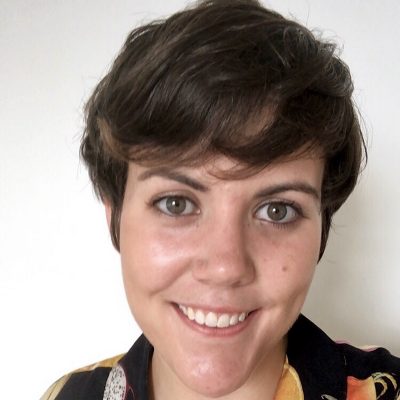Student Spotlight: Mary Kate Koch

January 21, 2020
Mary Kate Koch is a doctoral student in human development from Portland, Oregon. After earning a degree from Gonzaga University, she chose to pursue further studies in developmental psychology at Cornell because of her field’s faculty and the university’s geographical location.
What is your area of research and why is it important?
My research broadly centers around understanding why puberty is a difficult transition for some youth but not for others. Although the physical changes of puberty are universal, the timing and tempo of those changes and the way youth react to those changes is quite individual. I tend to focus on the social experience of puberty. My research asks questions like: Do adults treat early maturing youth differently than their peers? How do boys and girls describe their individual experiences during puberty? Who feels like their social roles are most disrupted during puberty?
What are the larger implications of this research?
Experiences during puberty tend to have long-term developmental consequences. For example, girls who reach menarche earlier than their peers tend to have higher rates of contact with the juvenile justice system throughout adolescence, which can negatively impact long-term achievement in school and work. The research I presented at the American Psychology-Law Society Conference showed that adults have different perceptions of the legal responsibility of same-aged youth depending on how visually mature youth appeared such that more mature looking youth were penalized more harshly for the same misdemeanor. These kinds of studies can help us unpack how social biases may be shaping the different experiences youth have during puberty that are contributing to negative developmental consequences.
What inspired you to choose this field of study?
My honors thesis in undergrad involved asking people to write about their worst failures. A significant portion of the responses centered around difficult times during adolescence. This outcome convinced me to commit to studying what I was already interested in, which is the meaning that we encode in adolescence. My favorite books growing up were coming-of-age novels, like The Catcher in the Rye, which thematically marinate in the storm and stress and struggle for identity that color adolescent development. I chose to focus on puberty in particular because it’s the gateway into adolescence.
Where did you travel with your Graduate School Conference Travel Grant?
I went to the American Psychology-Law Society Conference in Portland, Oregon to present my research on visual maturation bias in sentencing decisions.
How important was obtaining this grant for your professional development?
Attending the American Psychology-Law Society Conference was a great professional experience because this conference is attended by both researchers and legal practitioners. This meant that not only could I receive feedback from both an academic and applied audience, but also that I could quickly disseminate my research to practitioners in hopes that they may take my findings into account the next time they encounter a case concerning adolescents.
What are your hobbies or interests outside of your research or scholarship?
When I’m not doing research, I can usually be found on a soccer field or a basketball court. And when I’m too injured to play sports, I dabble in drawing and spend time with my beloved cat, Cat Stevens.
Why did you choose Cornell to pursue your degree?
I chose Cornell mainly because of the excellent faculty in my department and to work with my advisor, Dr. Jane Mendle. My decision was also swayed by the fact that Cornell is surrounded by greenery and gorges. Although not quite the Columbia River Gorge, I still felt at home as soon as I stepped foot on campus.

